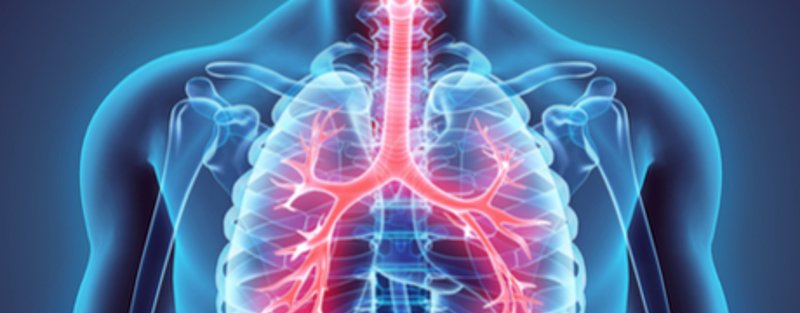
News
Our Interview with Dr Neil Williams
Neil Williams is a Senior Lecturer in Exercise Physiology and Nutrition in the Department of Sport Science at Nottingham Trent University (NTU). He established the research programme into exercise induced asthma and dietary supplementation at NTU where he completed his PhD. Dr Williams’s current research focuses on investigating the role of dietary interventions and the gut microbiota in respiratory health (asthma and upper respiratory symptoms), athlete health and exercise performance. We caught up with him to learn more about his career and research….

1. Could you tell us what got you interested in exercise physiology and nutrition?
I always had a love for sports, exercise and being physically active whether that was riding my bike or playing football. When I completed A-levels, I wanted to go to university, but didn't quite know I wanted to study. But I loved sport and I loved science, so it makes sense to combine the two and study sports science. I absolutely loved it and really enjoyed my time there. However, throughout my undergraduate degree and my masters, I always had a real interest in how nutrition interventions could maybe improve athletic performance. You've got all of these other elements that support an athlete, but nutrition could really take them to the next level and that that really fascinated me.
During my masters I was fortunate enough to work on our projects looking at carbohydrate and protein supplementation, but in military settings. I then worked for a couple of years as an occupational physiologist, understanding how the body responds to exercise in physically demanding environments such as the heat and cold, but primarily in military personnel. I found the association between the physical demands of being in such a challenging environment fascinating, but also then how we could use appropriate nutrition strategies and interventions to support these personnel in these harsh environments. I realised that some athletes who are training for endurance events had a high prevalence of exercise-induced asthma, and so when an opportunity came up to go to Nottingham Trent University to do a PhD, looking at nutrition and respiratory conditions such as exercise-induced asthma, it seemed like an opportunity to not miss!

2. Your current research focuses on asthma, exercise-induced bronchoconstriction, and the gut microbiota. What are some findings with regards to probiotic/prebiotic supplementation and asthma?
The evidence for the role of the gut microbiota in respiratory disease and asthma is continuing to expand at a very fast pace, which is exciting. I guess the understanding of how we can harness or target the gut microbiota is proceeding at a less rapid pace.. There are lots of fascinating studies in mice that show that things like prebiotics can help to reduce airway inflammation. It’s interesting that, from a mechanistic perspective, we might be able to reduce the responsiveness of the airways to allergens and triggers that would cause asthma. In humans, there's weaker evidence currently and we need to have more large scale, well-designed human intervention trials using probiotics and prebiotics in asthmatic individuals. The work that we've done at NTU primarily focuses on prebiotics in physically active, athletic asthmatics, who have exercise-induced bronchoconstriction. We found that after three weeks of feeding a prebiotic, we could reduce the severity of exercise-induced bronchoconstriction in these individuals and extent of airway inflammation as well. Again, that is just a small-scale study today and we need to do much larger.
It's exciting moving forward to try and understand what the direct mechanisms are between the gut and the lungs. And this association between the gut-lung axis and how we can use probiotics and prebiotics to harness it is something that I'm really fascinated by. So do watch this space!
3. Could you tell us about some nutrition and lifestyle interventions that are currently being investigated for preventing or managing exercise-induced bronchoconstriction? Are any such interventions being implemented with athletes?
With something like EIB (exercise-induced bronchoconstriction), we're never going to cure it through lifestyle interventions and nutrition. Our challenges is to help manage it and improve the management of the condition alongside pharmacological interventions.
In the long term, maybe we could reduce the dose of pharmacological intervention, which could be beneficial for the athlete. High doses of Omega-3 polyunsaturated fatty acids, EPA and DHA have been shown to reduce airway inflammation and reduce the level of bronchoconstriction i.e. the narrowing that occurs within the airways following exercise.
The other area of interest is actually the environment of the inspired air - wearing something called a moisture and heat exchange mask, (which can't necessarily be used in competition because they're not regulated for use). But they could be used by athletes in training. By warming up the air as they breathe through the mask and moistening the air, it means that they get less dehydration within the airways. Since dehydration of the airways causes narrowing to occur, that's something that's being implemented in training scenarios and settings. The other thing that is quite important for athletes and individuals who suffer from EIB is to have a sufficient warm-up. We all get told at school to warm up before you exercise but it actually warms up the airways and it's really important for someone who suffers from EIB. We know that if you do a fairly high intensity warm up, then someone EIB can have what's termed a ‘refractory period’. It’s where they get a very small amount of airway narrowing during that warm-up which then works as a protective mechanism to stop them from getting a severe response during the actual competition or training.
4. What are some future areas of research within sport and exercise nutrition that you are looking forward to?
Some of the things that are really driving me and my interests at the moment are interventions to improve athlete health. Without healthy athletes, we can't necessarily get them on the start line. We want to make sure our athletes are healthy, to reduce days lost to illness and injury. One way of doing that is with nutrition strategies and interventions. Such as consuming things like prebiotics and probiotics during the training period or during a competitive football season or rugby season, to try and reduce respiratory tract infections, gastroenteritis etc. We've got a couple of studies investigating that at the moment, and so again, watch this space for some evidence to try and use nutrition to reduce infection risk.
The other area that I'm really interested in from a nutrition perspective is nutrition strategies to reduce gastrointestinal symptoms and complaints during exercise. We know that some endurance athletes or those competing at a high intensity, can have quite a lot of GI issues. It's definitely less well reported compared to, say, upper respiratory symptoms, probably because maybe there's that level of embarrassment to talk about gut issues such as nausea, flatulence, vomiting, etc. but the work of Jamie Pugh from Liverpool John Moores has shown that they are highly prevalent. Actually one of the things that really interests me is how we can use nutrition to try and reduce things like gut permeability and gut damage associated with exercise. I think from an applied setting when working with athletes, another thing to think about is the personalisation of nutrition interventions. You can never work with a one size fits all approach with performance nutrition. It should always be done on a food first approach and then move to personalised dietary supplements and interventions later on.
Future research can explore how we can work with the individuals to make sure that we're personalising nutrition interventions to suit that individual, sport, environment, training and competition.
5. What are some key learnings from your career that you would share with students and early careers researchers?
I think this is all going back to the undergraduate student days and what I'd recommend to undergraduate students now that I have the pleasure of teaching is, especially when it comes towards the final year of your undergraduate degree, to find topics and disciplines that really inspire and excite you so that you become more engaged in the process.
It’s trying to find things that you can then be inspired to pursue further down the line for a career. Not everyone that studies sports science is going to end up as a sports scientist, but there are lots of extra vocational activities you could take part in. Also the disciplines of things like sports, science and nutrition are very multidisciplinary. There are lots of skills that you can get and transfer to other careers, but the more that you put into it, the more you're going to get out of your degree.
So always look for those other opportunities. It's something that I would really encourage students to do. Be active and engaged in your learning and be enthusiastic and find things that inspire and excite you. And then as you then start to move, you’ll know if you’ll follow roots similar to myself and others that end up going through the research group as early career researchers and academics.
Collaborate, collaborate, collaborate! Because you can achieve a lot more working as part of a multidisciplinary team than you can on your own. We're very good at putting our blinkers on in research and going down our own little research rabbit holes, but it is much better to be more outward and open looking and to find out how we can apply our research and who we can work with to move things forward. Look for people, mentors, and experts that you can work with. I would not be here today if I hadn't been fortunate enough to have an amazing supervisory team for my PhD or people that inspire me to go and meet with them. Don't just send them an email. Ask to sit down with someone over coffee. It's much better to meet face to face if possible.